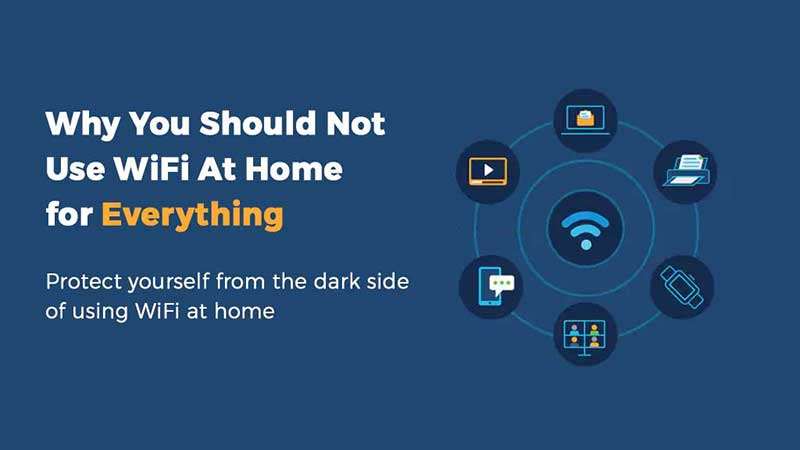Considering an online B.Tech degree in India? Understand its validity, accreditation, recognition and employability of online btech degree in India

The desire to pursue higher education often collides with the realities of work, family commitments, or geographical limitations. In such scenarios, online degree programs often emerge as a promising alternative, offering flexibility and accessibility. However, when it comes to technical degrees like B.Tech, the question of validity arises. This article delves into the complexities surrounding online B.Tech degrees in India, exploring their recognition, validity, and associated concerns.
Understanding Distance Education
Before we delve into online B.Tech degrees, it’s crucial to understand the concept of distance education. Distance education refers to a mode of learning where students and instructors are geographically separated and primarily communicate electronically or through printed materials. This approach allows individuals to pursue education without attending traditional classroom lectures, making it convenient for working professionals or those residing in remote locations.
Recognition of Distance Education in India
Distance education is a recognized form of learning in India, governed by the University Grants Commission (UGC) and the Distance Education Bureau (DEB). These regulatory bodies establish guidelines and ensure quality standards for distance education programs offered by universities and institutions.
Also Read: Is NCERT Important For UPSC? A Complete Guide
UGC Approval: The Crucial Factor
The University Grants Commission (UGC) is the apex regulatory body for higher education in India, responsible for maintaining standards and ensuring quality across universities and colleges. Institutions offering distance education programs, including online B.Tech degrees, are required to obtain approval from the UGC and adhere to its guidelines to ensure the validity and recognition of their courses.
While distance education enjoys recognition, it’s important to understand that not all programs are approved by the UGC. This approval is crucial for the degree’s validity and recognition by employers and government agencies.
The Case of B.Tech Distance Education: Why it’s Invalid
The All India Council for Technical Education (AICTE) is the statutory body responsible for regulating technical education in India. B.Tech, being a technical program with a strong emphasis on practical training, is not permitted to be offered through distance education mode by the AICTE. This decision stems from the inherent requirement of B.Tech programs to equip students with hands-on experience through laboratories, workshops, and project work, which are difficult to effectively replicate in a purely online setting.
Therefore, any online B.Tech degree offered in India is not considered valid by the government, employers, or professional bodies. This includes institutions claiming affiliation with foreign universities or unrecognized Indian universities.
UGC Guidelines for Online Technical Programs
While B.Tech through distance education is not permitted, the UGC has introduced guidelines for offering online technical programs in specific fields like computer applications and information technology. These programs, however, are not equivalent to B.Tech degrees and hold a different designation, such as a Postgraduate Diploma or an Advanced Diploma.
Also Read: CBSE or ICSE Which is Better For Future in 2024
Accreditation: Adding Credibility
While UGC approval signifies the program’s validity, accreditation by recognized bodies like the National Board of Accreditation (NBA) further enhances its credibility. Accreditation involves a rigorous assessment of the program’s curriculum, faculty qualifications, infrastructure, and student learning outcomes.
Employability: Beyond the Degree
One of the primary concerns for students pursuing B.Tech distance education is their employability prospects. While online degrees are increasingly accepted in the job market, some employers may still harbor reservations about the quality and authenticity of distance education credentials. Having an accredited online technical diploma or certificate can enhance your skills and marketability in the job market. However, it’s crucial to understand that these qualifications may not hold the same weight as a full-fledged B.Tech degree in certain industries or for specific roles.
Myths and Realities: Demystifying Online B.Tech Degrees
| Myth | Reality |
|---|---|
| All online B.Tech degrees are valid. | Only online technical programs approved by the UGC and offered in permitted fields like IT are valid. B.Tech degrees through distance education are not recognized. |
| Online B.Tech degrees offer the same value as traditional B.Tech degrees. | The lack of practical training in online B.Tech programs can limit their value compared to traditional B.Tech degrees from accredited universities. |
| There are no benefits to pursuing online technical programs. | Online technical programs offer valuable skills and knowledge, which can be beneficial for career advancement in specific domains. |
Benefits of Online Technical Programs
- Flexibility and convenience: Online programs allow for learning at your own pace and schedule, making it easier to balance work, family, and other commitments.
- Wider program choices: Online programs offer a broader range of options compared to what might be available in your geographical location.
- Cost-effective: Online programs can sometimes be less expensive than traditional programs due to reduced infrastructure and overhead costs.
Challenges and Solutions
- Lack of Face-to-Face Interaction: Online B.Tech programs lack face-to-face interaction with instructors and classmates, which can make it challenging to ask questions and collaborate.
- Limited practical training: While some online programs may offer virtual simulations or project-based learning, the absence of hands-on experience in a lab environment remains a challenge.
- Time Management: Balancing work, family, and education can be challenging for students in online B.Tech programs.
- Self-discipline and motivation: Online learning requires a high degree of self-discipline, time management skills, and motivation to stay on track and complete the program successfully.
- Verification of credentials: Employers may require additional verification of online qualifications, which can be time-consuming.
- Technical Issues: Technical issues such as internet connectivity problems and software glitches can disrupt the learning experience.
Solutions:
- Look for online programs with strong industry partnerships that offer internship opportunities or project-based learning components.
- Develop strong self-discipline and time management skills to stay focused and engaged throughout the program.
- Be prepared to provide additional documentation or verification.
Top Universities Offering B.Tech Online Courses
- Indira Gandhi National Open University (IGNOU)
- BITS Pilani Work Integrated Learning Program (WILP)
- Amity University Online
- Jain University Online
Key Considerations for Aspiring Students
Given the complexities surrounding online B.Tech degrees, here are some crucial factors to consider before pursuing an online technical program:
- Program recognition: Ensure the program is approved by the UGC and offered in a permissible field like IT. Look for programs offered by reputable universities with a good track record.
- Accreditation: Check if the program is accredited by bodies like the National Board of Accreditation (NBA) for added credibility.
- Course content and structure: Evaluate the curriculum, learning methods, and assessment strategies to ensure they align with your learning style and career goals.
- Faculty expertise: Look for programs with qualified and experienced faculty who can provide effective guidance and support.
- Career relevance: Assess the program’s relevance to your desired career path and the industry’s specific requirements. Research job descriptions and required qualifications to gauge the program’s effectiveness in meeting your career aspirations.
- Support services: Investigate the support services offered by the institution, such as career counseling, academic support, and technical assistance, to ensure you have the resources needed to succeed.
Conclusion
While online B.Tech degrees are not valid in India, online technical programs in approved fields like IT can offer valuable skills and knowledge for career advancement. However, it’s crucial to approach these programs with a clear understanding of their limitations, challenges, and potential benefits. By carefully evaluating the program’s recognition, accreditation, content, and support services, and aligning it with your career goals and learning style, you can make an informed decision about whether an online technical program is the right fit for you. Remember, the lack of practical training inherent in online B.Tech programs necessitates careful consideration and exploration of alternative pathways, such as traditional B.Tech degrees or accredited online programs in specific technical fields that complement your existing skills and experience.
FAQs
Q. Can I study BTech while doing job?
The All India Council for Technical Education (AICTE) has allowed people to work and study engineering part-time at the same time, but regular B.Tech students cannot work while studying.
Q. Can I do B.Tech after 4 years gap?
Yes, you can typically start a B. Tech degree after waiting four years since you finished high school. Lots of colleges and schools will let you apply even if you’ve taken a break from studying for a while.
Q. What is eligibility for BTech?
To enroll in BTech IT, you need to meet these requirements: Pass your 10+2 or similar exam with 50% or more from a recognized institution. You must have studied Math, Physics, and Chemistry in high school.
Q. Is online degree same as regular degree in India?
Online degrees are as good as traditional ones if you get them from good schools. The education you get online can be just as good as what you’d get in a classroom.
Q. Is online degree valid for UPSC?
Yes, you can use a correspondence degree for the UPSC exam, but it has to be from a recognized university like IGNOU. Many people have already passed the UPSC exam after studying through correspondence courses.

Hi I am Harish. I am a blogger, writer. I am also a photographer. I love to share my thoughts and experiences through the words in my blog. Thank you.



